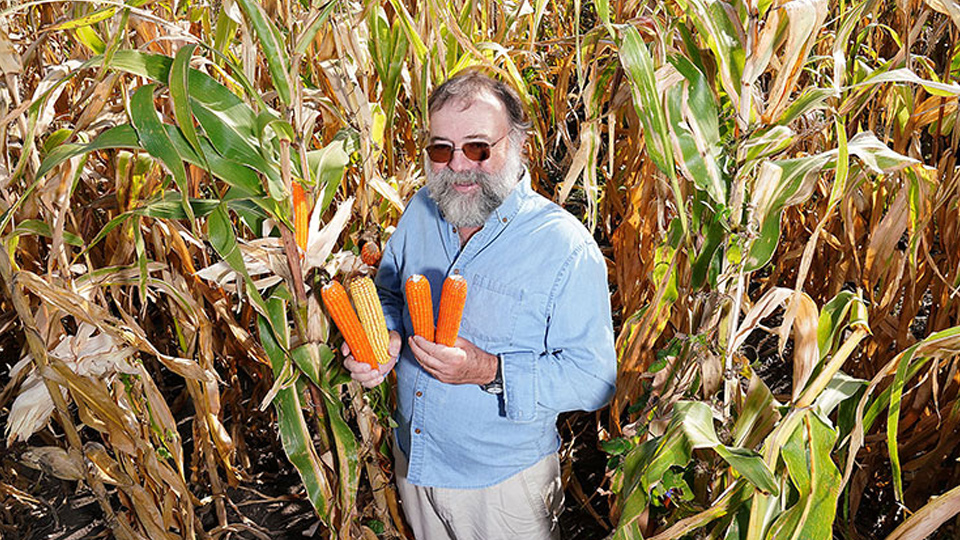Trask Fund Awards Grants for Corn, Cancer Research
Subscriber Benefit
As a subscriber you can listen to articles at work, in the car, or while you work out. Subscribe Now
Three Purdue University projects have been awarded a total of $143,000 in grants from the Trask Innovative Fund, which is administered by the Purdue Research Foundation Office of Technology Commercialization. Two of the projects are aimed at improving corn, the other focuses on an affordable, cancer screening technique.
The PRF says the fund supports short-term projects that enhance the commercial value of Purdue’s intellectual property.
Professor Torbert Rocheford in the Department of Agronomy received $50,000 for his work on improving the nutritional value of corn by increasing carotenoid levels. IIB has previously reported on Professor Torbert’s Orange corn, the brand name of his grain sold by NutraMaize. Rocheford says the additional carotenoids can help protect eyes from macular degeneration.
“The goal of developing high-carotenoid varieties of sweet corn is to create an accessible and popular food that can make a meaningful impact on the amount of health-protecting lutein and zeaxanthin consumed by Americans,” said Evan Rocheford, company chief executive officer and Torbert’s son.
Professor Guri Johal in the Department of Botany received a $49,000 grant for his development of a dwarf corn. Johal says traditional corn is excessively tall, which puts it at risk from a windstorm and also typically requires high amounts of fertilizer.
“Short-statured corn is more resilient than traditional corn and requires less inputs and farmland,” Johal said. “This enhances the margin for farmers and protects the environment in the process. The corn industry also stands to gain as more seed will be needed to plant the crop at higher densities.”
Trask funds will be used to further identify the role of the specific gene linked to short-stature corn.
Professor Deborah Knapp in the College of Veterinary Medicine and Professor Saeed Mohammadi in the College of Electrical and Computer Engineering jointly received a nearly $45,000 grant for their research in canine cancers.
The innovation has been licensed from the Office of Technology Commercialization to Molecular Diagnostics, a startup company.
The project focuses on creating a fast, noninvasive and low-cost cancer screening technique. The PRF says the initial focus was detecting bladder cancer in dogs, but the eventual goal is detecting bladder cancer in people.
Mohammadi said the Trask award will make it possible to build a prototype to detect bladder cancer in urine samples of dogs.
“We hope to improve the sensitivity and specificity of our technique so it can be used to detect the disease at early stages and improve the prognosis of the disease,” said Mohammadi. “If this can be established, there will be a good potential for the application of such a simple and noninvasive technique for screening cancer in humans.”
The application deadline for the next round of funding is February 18.
